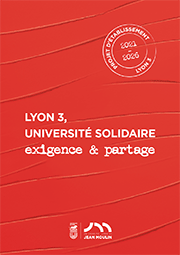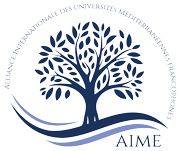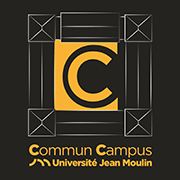AccueilRechercheProgrammes et productions scientifiquesThèsesThèses soutenuesThèses soutenues - 2006-2021Thèses soutenues - 2014
-
Partager cette page
- Recherche,
SILVEIRA German
La résistance dans l’obscurité. Le public de la cinémathèque uruguayenne pendant la dictature militaire (1973-1984)
Thèse en Etudes transculturelles soutenue le 21 mars 2014.
Les années de dictature militaire (1973-1984) furent paradoxalement la période la plus importante dans l’histoire de la Cinémathèque Uruguayenne. En ces temps obscurs l'institution s’est forgé une réputation au niveau local et international sur la base d’un travail culturel indépendant. Malgré les circonstances répressives propres au régime, le public de l’institution a montré des signes de vie publique et a participé activement à la création d'un espace symbolique de résistance. En ce sens, pendant la période de dictature, la Cinémathèque Uruguayenne va s’inscrire en tant qu’institution de médiation, comme un « nouveau » acteur culturel qui émerge dans des circonstances critiques particulières, pour assumer un rôle que ne l’avait pas été réservé jusqu'à ce moment-là. Ainsi, nous croyons que dans le contexte latino-américain des années 1960-70, le cinéma s’est transformé, suivant l’expression de Pierre Sorlin, en un « lieu de conflits » L’objectif principal de ce travail consiste donc en décrire, à travers le témoignage des abonnés qui assistaient aux séances programmées par l’institution tout au long de la période de dictature, le lieu social où se déroulait la réception. A la suite de l’approche historique des études de réception développée par la théoricienne américaine Janet Staiger, nous nous proposons de comprendre l’influence du contexte dans les formes de réception cinématographiques et de discerner les mécanismes à travers lesquels le public s’est approprié le cinéma comme un « espace de résistance culturelle », appellation que recevait la Cinémathèque à l’époque.
The years of military dictatorship (1973 – 1984) ironically turned into the most important period in the history of Uruguayan Cinematheque. Based on an independent cultural work, back in those dark times, the institution was able to consolidate a task acknowledged both locally as well as internationally. Despite the repressive circumstances of the regime, the public of the institution showed signs of a public life and actively participated in the creation of a symbolic space for the resistance. As a cultural mediation institution, the Cinematheque so appeared as a "new" actor emerging in specific critical circumstances to assume a role that it did not have in store until then. In this way, we believe that in the 70s and 80s Latin American context, cinema transformed into a “place of conflicts” (lieu de conflits), following Pierre Sorlin’s expression. The main objective of this work is to describe – through the testimony of the spectators who attended the performances programmed by the institution during the dictatorship period – the social place where the reception occurred. Following the historical focus of the reception developed by American theorist Janet Staiger, we intend to understand the influence of the sociopolitical context in the ways of cinematographic reception and to discern the mechanisms whereby the public got hold of the cinema as a “cultural resistance space”, name given to Uruguayan Cinematheque back then.
Mots-Clés : Cinémathèques - Culture cinématographique – Censure - Ethnographie des publics - Réception - Résistance culturelle - Amérique Latine
Keywords : Film archives – Cinematographic culture – Censorship – Ethnography of public – Reception – Cultural resistance – Latin America
Directeur de thèse : Jean-Pierre ESQUENAZI
Membres du jury :
- Michel MARIE, Professeur émérite, Université Sorbonne Nouvelle-Paris III
- Jean-Marc LEVERATTO, Professeur, Université Paul Verlaine de Metz
- Christophe GAUTHIER, Conservateur en chef des bibliothèques, Chercheur associé à l’IHTP
- Olivier MOESCHLER, Enseignant Chercheur, Université de Lausanne
- Jean-Pierre ESQUENAZI, Professeur, Université Jean Moulin Lyon 3
Président du jury : Michel MARIE
Mention : Très Honorable
Equipe d'accueil : CEDFL







